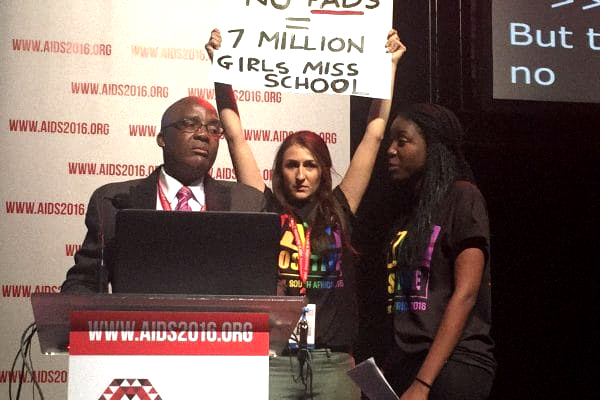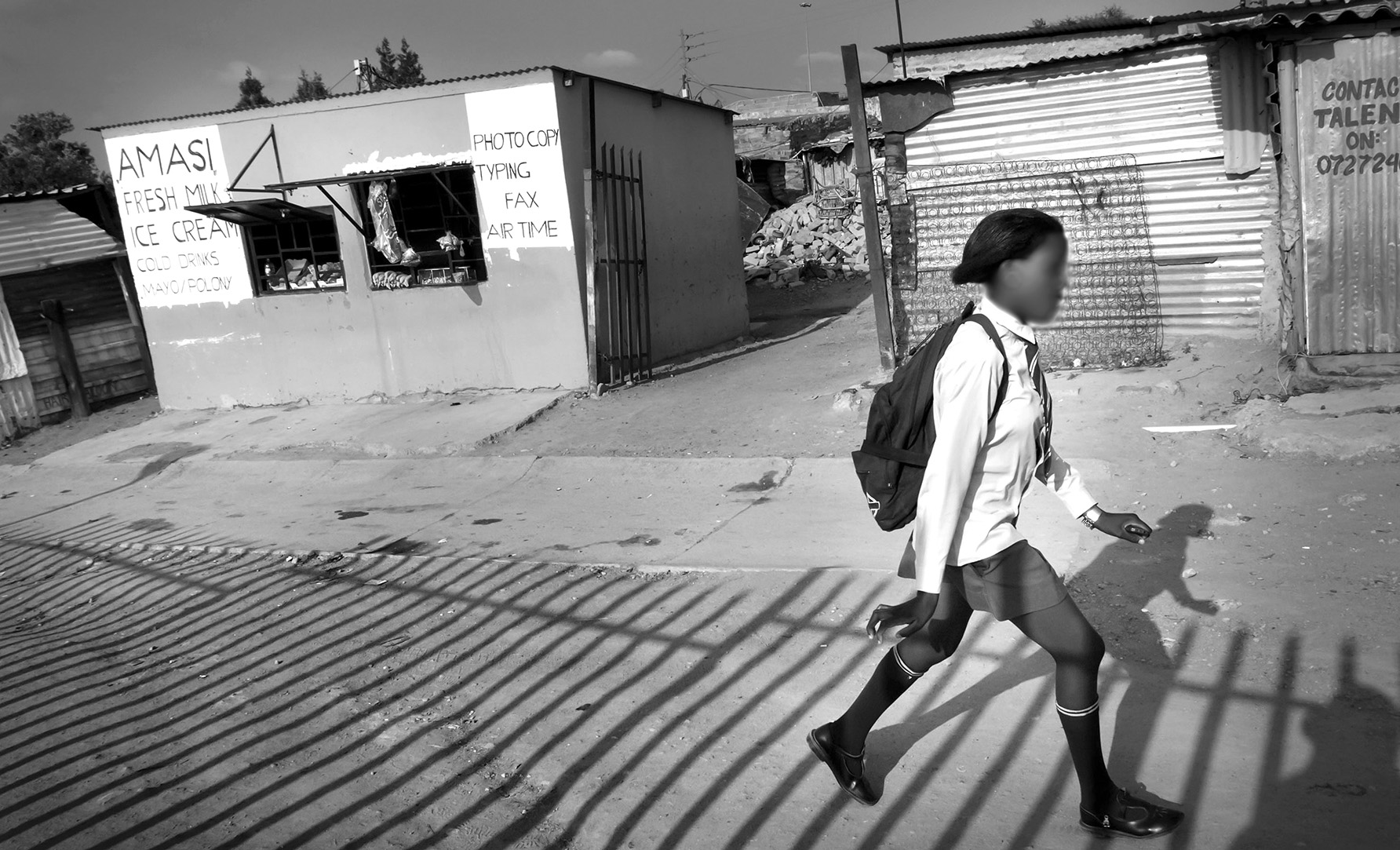René Sparks is a nurse, health equity advocate, and Tekano and Aspen New Voices Fellow with 21 years’ experience working across South Africa with a focus on ensuring equitable and just access to quality healthcare for all.
In the middle of Women’s Month, those of us working in the field of sexual and reproductive health are reminded of the countless initiatives that have come and gone in an attempt to address the extreme period poverty that continues to plague women and girls in South Africa.
We all know the detrimental costs.
In South Africa, 3.7 million girls are unable to access menstrual hygiene products. A University of Stellenbosch study concluded that 30% of girls were still missing school due to periods and lack of access to sanitary towels.
It is hard to imagine the levels of poverty that so many are living through if you have not experienced it yourself — the kind of poverty that leaves girls in South Africa vulnerable to sexual exploitation, abuse and trafficking. And beyond this, the deep crisis of confidence and the lack of dignity.
I speak from my own memory of being told, as a young schoolgirl, that nothing would become of me and that I wouldn’t make it to university. I managed to break the pattern, but millions are still trapped in the cycle.
For school-going girls, access to menstrual hygiene products has been a long-standing issue. Many young women and girls rely on free distribution programmes, often linked to universities or HIV prevention programmes at local clinics or within communities. In the worst cases, young women resort to transactional sex to get the money to tend to this basic need, resulting in increasing cases of HIV.
Since 2016, the Department of Women, Youth, and Persons with Disabilities has been developing the Sanitary Dignity Policy Framework. The resulting policy, published in 2019, sets minimum norms and standards for providing sanitary towels to indigent women and girls. Implementation, however, has not been as successful as hoped.
With Covid-19, school closures meant that, once again, girls had to do without. But Covid-19 only amplified already existing failures. Some damning findings were published in a report last year after a forensic investigation into a sanitary towel pilot project launched in the 2016-17 financial year; the report shows R4-million worth of sanitary towels, destined for the poorest schools, were reported missing in KwaZulu-Natal.
It did not stop there.
A further R2-million surplus stock was then procured, but the investigation found mismanagement, including an oversupply of stock found in storage facilities in some areas, whereas other areas were completely underserved. The 2020 report does not mention redistribution of this stock, so we can conclude that the pilot project did not reach those in need or serve its purpose.
 Activists demand free sanitary pads for schoolgirls at the 2016 Aids conference in Durban during former Minister of Health Aaron Motsoaledi’s speech. (Photo: Spotlight)
Activists demand free sanitary pads for schoolgirls at the 2016 Aids conference in Durban during former Minister of Health Aaron Motsoaledi’s speech. (Photo: Spotlight)
This case highlights the need for rigorous monitoring and reporting on such projects. It further creates questions around transparency and inclusivity of programmes like these. How are school governing bodies and the girls themselves co-creating programmes of this nature and what accountability strategies could be implemented to prevent such losses and mismanagement in the future?
In 2018, the Minister of Finance announced a VAT zero-rating on sanitary towels, making them exempt from 15% VAT. This came after many calls for zero-rating of all sanitary products, including tampons, panty liners, menstrual cups and reusable sanitary items. The zero-rating is a great step forward, especially in the Covid-19 context of job losses and economic hardship, but sanitary towels remain a luxury that many can’t afford. Also, only applying this to sanitary towels shows that fiscal considerations still trump the needs and choice of women and girls.
Last, there are questions of dignity to consider. When put into practice, the policy commitment of 2019 puts the burden on women and girls to expose their needs in order to benefit. Imagine having to display your poverty by asking for products every month, in front of your teacher, lecturer, or healthcare provider, to access these basic items. This could be avoided by having a dispenser available in bathrooms, similar to the condom dispensers widely seen in health facilities. Additionally, some community health programmes have access to sanitary products misleadingly linked to HIV testing.
Beyond policy implementation, many initiatives and campaigns have failed to find a sustainable fix.
Both the menstrual cup and the reusable pad were meant to be a silver bullet, providing a solution, saving money, and protecting the environment. But for the many girls who were given these reusable pads by local NGOs, they have proved ineffective. For example, for the many teens living in rural South Africa, access to a water source is an issue, with many having to walk long and dangerous distances to wash their soiled pads. And finding a discreet place to dry them is also a daily challenge. We need solutions that consider safety, security and dignity.
A sustainable approach will require a community response, using our data to identify villages, towns and districts most in need and then providing free menstrual hygiene products through a variety of stakeholders, not just in the poorest schools.
In my work, I see a willingness among traditional healers and community healthcare workers to be part of the solution. Our so-called “spaza shops” and places of worship are also safe and accessible spaces.
This may seem like just another handout that doesn’t resolve the real issue of poverty in South Africa and its asymmetric impact on women and girls, but the move towards cheaper or reduced costs for menstrual hygiene products is a global phenomenon that recognises its contribution to women’s health and basic human rights.
There is no denying the need and how it has been amplified by shrinking livelihoods due to the pandemic.
Since the start of the Covid-19 lockdown, I have been providing dignity and hygiene packs to young women and girls, totalling 1,710 packs distributed last year. While the number that one person can distribute is limited by funding and time, the demand is increasing.
I receive daily WhatsApp, email, and phone requests to support institutions of higher learning and sub-districts, and as of late, I also have had many requests from men taking the dignity pack for their partners. Making much-needed menstrual hygiene products free and available through the stalwarts within communities who are ready and available to support, is a way forward that would bring immediate relief for the poorest women in our society. DM/MC
This article is part of Spotlight's Women in Health series.
This article was produced by Spotlight – health journalism in the public interest.





 Activists demand free sanitary pads for schoolgirls at the 2016 Aids conference in Durban during former Minister of Health Aaron Motsoaledi’s speech.
(Photo: Spotlight)
Activists demand free sanitary pads for schoolgirls at the 2016 Aids conference in Durban during former Minister of Health Aaron Motsoaledi’s speech.
(Photo: Spotlight)